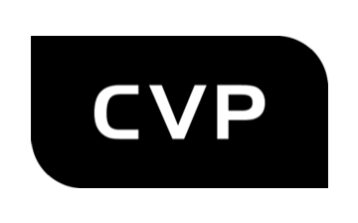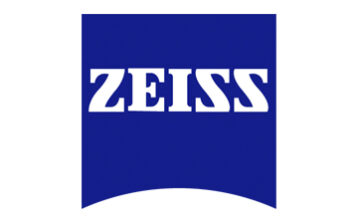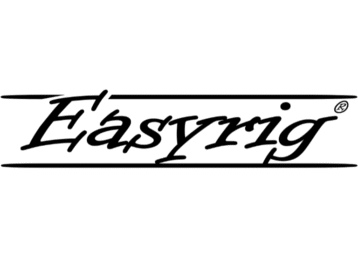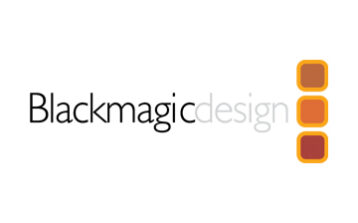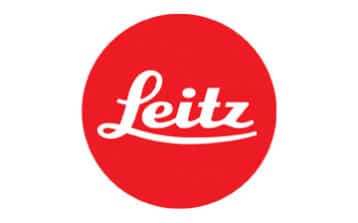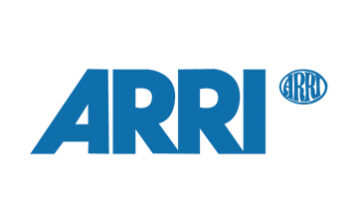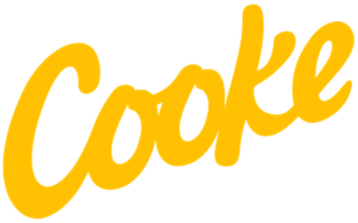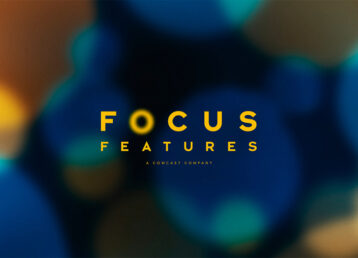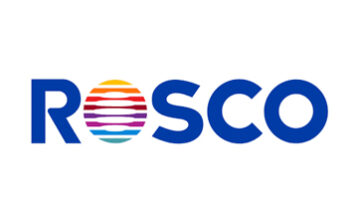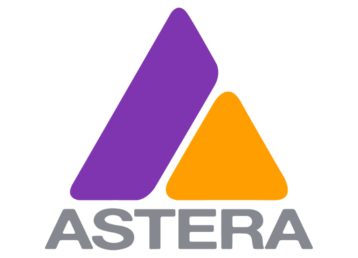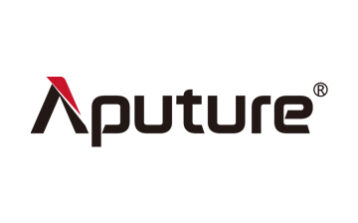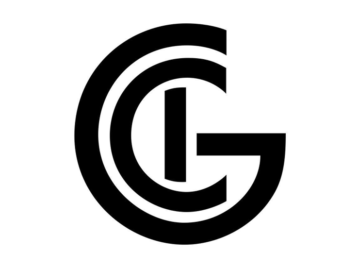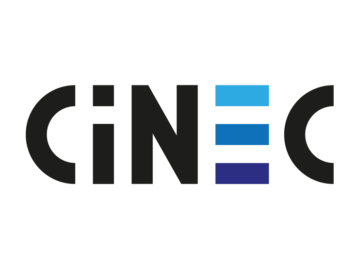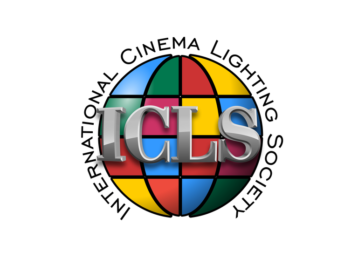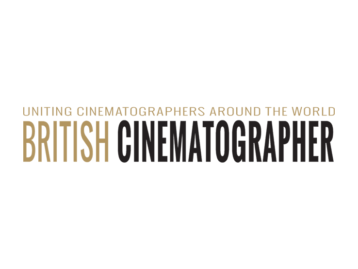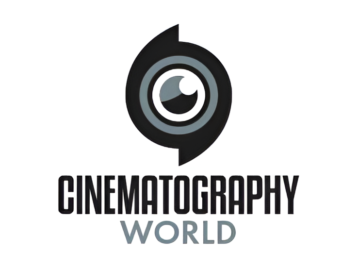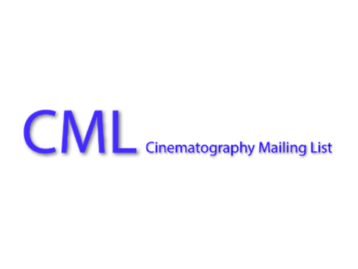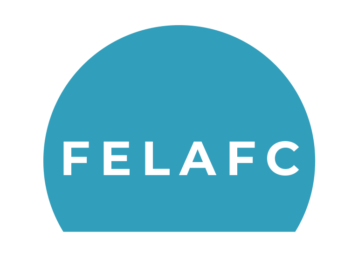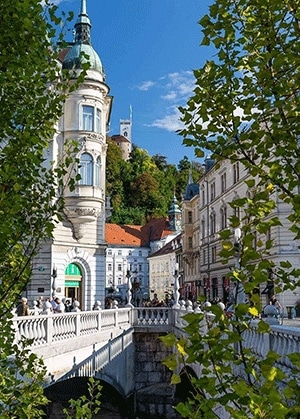
Between 23 and 27 January 2020, the Slovenian Cinematheque will host the second edition of balKam, an overview of the most interesting and most successful films in view of filming and cinematography in the territory of former Yugoslavia. As was the case at the first edition, the films were selected by the following national associations of cinematographers:
ASBH (Bosnia and Herzegovina)
SAS (Serbia)
MSC (Macedonia)
HFS (Croatia)
ZFS (Slovenia).
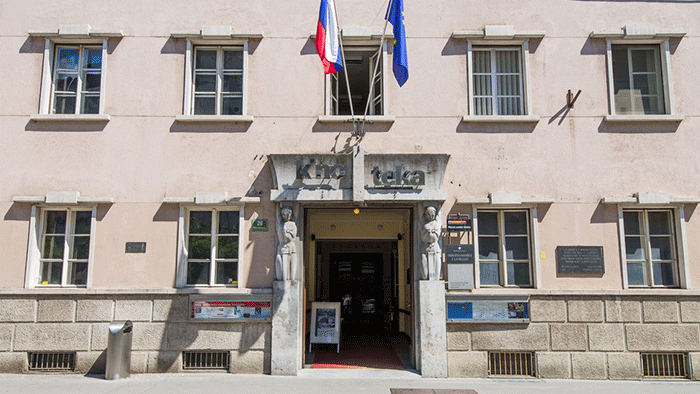 This year, Kosovo will also be represented by a short film. Every national association could suggest one feature, one documentary and one short film. This year’s edition features two new sections: Student Films and Legends. The first will provide an overview of the most prominent representatives of the student production and thus contribute to a closer connection of the Academies in the Balkans. We will screen films by students from Bosnia and Herzegovina, Croatia, Serbia and Slovenia. In the second section, intended for legendary films, we will screen Kiril Cenevski’s Black Seed (Crno seme, 1971), Aleksandar Petrović’s I Even Met Happy Gypsies (Skupljaći perja, 1967), Vlatko Filipović’s Heave Ho! (Hop Jan, 1967) and Karpo Godina’s Healthy People for Fun (Zdravi ljudi za razonodu, 1971).
This year, Kosovo will also be represented by a short film. Every national association could suggest one feature, one documentary and one short film. This year’s edition features two new sections: Student Films and Legends. The first will provide an overview of the most prominent representatives of the student production and thus contribute to a closer connection of the Academies in the Balkans. We will screen films by students from Bosnia and Herzegovina, Croatia, Serbia and Slovenia. In the second section, intended for legendary films, we will screen Kiril Cenevski’s Black Seed (Crno seme, 1971), Aleksandar Petrović’s I Even Met Happy Gypsies (Skupljaći perja, 1967), Vlatko Filipović’s Heave Ho! (Hop Jan, 1967) and Karpo Godina’s Healthy People for Fun (Zdravi ljudi za razonodu, 1971).
The festival, aims to bring together cinematographers, other film workers and viewers at the screenings of the jewels of cinema, will host members of the mentioned associations and filmmakers, with whom we will talk about their creative work after the screenings. There will also be a few Slovenian premieres, among them those of SEE Factory 2019, an omnibus of short films made as part of the Southeast European Factory project with the participation of Urška Djukić and Lev Predan Kowarski, and the Macedonian documentary film Honeyland (Ljubo Stefanov, Tamara Kotevska, 2019), which received many international awards, among them three at this year’s Sundance Film Festival.
The second edition of the balKam festival confirms that there is a large interest in the connection between the cinematographers in the territory of former Yugoslavia, while the new sections and a larger number of participating countries are evidence of its growth. With the inclusion of the young (student) and the older generation (legends), we wanted to widen the circle of connection, for we believe that these two generations are often excluded from the largest, active working group of cinematographers. Thus, the younger will get a chance to establish contacts and have discussions with their older colleagues and present their works, while the representatives of the older generation will have the possibility to see their works being rescued from oblivion and shown in a digitised and restored version. This year, the younger generation will also be more active due to the participation of the KINO! Society for Expanding Film Culture. The festival will feature a five-day workshop whose participants will watch films, attend festival lectures and talks with experts in cinematography and have in-depth discussions, thus learning about the elements and procedures of cinematography. The resulting texts will be published on the Sharpening the Gaze webpage and a selection of them also in the KINO! magazine.
The idea for the balKam project was developed in the 2016–2018 period at the meetings of cinematographers in Bitola, where IMAGO organises a yearly conference of Balkan cinematographers (Manaki Brothers Film Festival), in Belgrade (Image in Motion – a festival of the Serbian association of cinematographers) and Helsinki (IMAGO Annual General Assembly (IAGA) and the IMAGO award ceremony). Through conversations among colleagues – the cinematographers from the Balkans – we found that we have similar problems in our work and detected a great interest in such an event. We all shared the opinion that the latter would provide an excellent opportunity for the promotion of films in the territory of former Yugoslavia, which is of course two-way. In addition, such an event also provides an exceptional opportunity to see and learn about the creative work of our colleagues from the neighbouring countries.
After the first balKam at the Slovenian Cinematheque, the same selection of films was screened at the cinematheques in Sarajevo and Banja Luka, whereby we realised our wish for a two-way nature of the festival and a wider distribution of the selected films. This year, we hope to add another venue, for the film selection is supposed to also be screened at the Manaki Brothers Film Festival, the oldest festival of cinematography, in Bitola in September 2020. There are a lot of wishes for development, but the first two are perhaps the following: for the following editions to start in another country every time and for the circle of participating countries to widen (Montenegro, Greece, Turkey…).
In addition to the screenings of fiction and documentary films followed by talks with cinematographers or directors, we will also organise a few accompanying events, among them panel discussions related to the state and the preservation of film heritage, working conditions and education of cinematographers in the Balkans.
Rok Kajzer Nagode
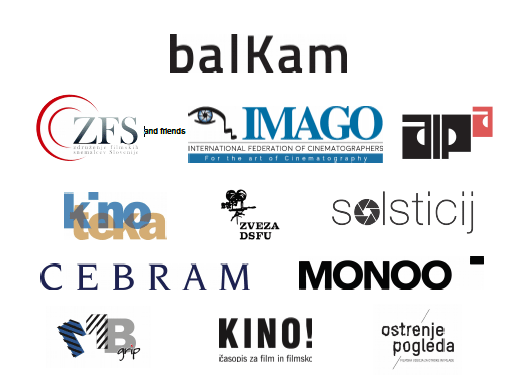
PROGRAM
23–27 January 2020, Slovenian Cinematheque, Ljubljana, Slovenia
23 January, Thursday
18.00
balKam: SEE Factory 2019 –
short film programme
In Your Hands
Cinematographer: Marko Milovanović, Directors: Maša Šarović, Sharon Engelhart, BiH/Montenegro/Serbia/Slovenia/North Macedonia/France, 2019, DCP, 1.78, colour, 9’
Zorica picks up her daughter Maja at the airport after having begged her to return home. In the car, she tells her some astonishing news and takes her to an unknown place where mother and daughter reassume their roles.
The Package
Cinematographer: Dušan Grubin, Directors: Dušan Kasalica, Teodora Ana Mihai, BiH/ Montenegro/Serbia/Slovenia/North Macedonia/France, 2019, DCP, 1.78, colour, 12’
After living in Paris for several years, the saxophone player Damir returns to Sarajevo for a concert. His friend asks him to bring a gift for her best friend Elma, who has a couple of surprises in store for Damir…
The Right One
Cinematographer: Lev Predan Kowarski, ZFS, Directors: Urška Djukić, Gabriel Tzafka, BiH/ Montenegro/Serbia/Slovenia/North Macedonia/France, 2019, DCP, 1.78, colour, 14’
A possessive mother, a loving son, the first visit of his fiancé and a silent witness… Four actors around a cake.
Spit
Cinematographer: Amel Djikoli, ASBH, Directors: Neven Samardžić, Carolina Markowicz, BiH/ Montenegro/Serbia/Slovenia/North Macedonia/France, 2019, DCP, 1.78, colour, 11’
Anka (12) and Jelena (38) have two things in common: their mother in hospital and the neighbourhood store where they spend their days – one outside and the other one inside it. One night, an unforeseen visit triggers an incident that will make both women suffer.
The Sign
Cinematographer: Naum Doksevski, MSC, Directors: Eleonora Veninova, Yona Rozenkier, BiH/ Montenegro/Serbia/Slovenia/North Macedonia/France, 2019, DCP, 1.85, b&w, 10’
Sara strongly objects to the wedding plans of her granddaughter Andreja. To convince Andreja not to get married, she takes her to her husband’s grave and begs him to give them a sign.
20.00 – balKam: Legends – Opening
I Even Met Happy Gypsies (Skupljači perja)
Cinematographer: Tomislav Pinter, Director: Aleksandar Petrović, Serbia (Yugoslavia), 1967, DCP (filmed on 35mm), 1.66, colour, 94’
The protagonist Belo Bora is spontaneous and wild, melancholy and passionate. He is married to an older woman, but loves a younger one named Tisa. He is carrying on with a pub singer and makes a living by collecting feathers. Life is like feathers, which sooner or later get swept up by the wind. That is why Bora does not run away from the bizarreness, cruelty or darkness of his fantasies or the brightness of his resistance and anarchy. This black-wave explosion of youth, love and the joy of life, traced through the character of the feather collector, won the Grand Prix at the 1967 Cannes Film Festival.
24 January, Friday
15.00
balKam: Student Films
Fragile (Krhko)
Cinematographer: Magdalena Ptiček, Director: Tomislav Šoban, Croatia, 2019, DCP, colour, 23’
Alma, a young trained actress, is looking for an apartment and taking part in numerous auditions, while her best friend is moving her life to Belgium.
I’m Not Here (Nisam ovdje)
Cinematographer: Janja Bijelić, Director: Sara Radusinović, BiH, 2018, digital format, colour, 21’
For the young Selena, growing up is a difficult struggle, for she deals with life in her own, quite chaotic way. Broke and unemployed, will she be able to escape this ‘gray zone’?
Why Is Mom Always Crying (Zašto mama vazda plače)
Cinematographer: Jana Vuković, Director: Karmen Obrdalj, BiH, 2019, digital format, colour, 16’
Ena is reading the love letters that her parents wrote after the war in Bosnia and Herzegovina had separated them.
Birdy (Tica)
Cinematographer: Admir Švrakić, ASBH, Director: Alen Šimić, BiH, 2018, digital format, colour, 20’
Birdy, a war orphan, comes to Sarajevo with his newborn baby because she needs an urgent surgery. In the big city, he surrenders to the night in which the demons of the past patiently await him.
Loyalty (Lojalnost)
Cinematographer: Aleksandar Pop Arsov, Director: Konstantin Jokić, Serbia, 2018, digital format, colour, 8’
Proving loyalty to a criminal boss leads to a parkour chase through the city streets.
Nežka
Cinematographer: Dejan Ulaga, Director: Gaja Möderndorfer, Slovenia, 2018, DCP, colour, 15’
After the Christmas holidays, the broken relationships in her family make Nežka take refuge in the world of her imagination.
17.00 – balKam
Panel Discussion: Education
With students and professors of various film academies, we will talk about the possibilities of training as a cinematographer in the Balkans and the specifics and different systems at individual academies.
Free admission.
19.00
balKam: Legends
Heave Ho! (Hop Jan)
Cinematographer: Đorđe Jolić, Director: Vlatko Filipović, BiH (Yugoslavia), 1967, DCP (filmed on 35mm), 1.66, b&w, 11’
This multi-award-winning documentary masterpiece about stonecutters celebrates the human devotion to work and the hard struggle with nature.
Black Seed (Crno seme)
Cinematographer: Ljube Petkovski, Director: Kiril Cenevski, Macedonia (Yugoslavia), 1971, DCP (filmed on 35mm), 1.66, colour, 89’
A story about three Macedonians in the Greek Royal Army who, during the 1946 civil war, are accused of being communists and are taken to a camp on an isolated island. In his exciting debut film, Kiril Cenevski explores the topic of genocide and the maltreatment of Macedonians in Greece, while the film is marked by excellent directing and exceptional acting.
25 January, Saturday
15.00
balKam: Legends
Healthy People for Fun (Zdravi ljudje za razvedrilo)
Cinematographer and director: Karpo Godina, ZFS, Yugoslavia, 1971, DCP (filmed on 35mm), 1.66, colour, 14’
A jocund, conceptual, comical document of the diversity of all the nationalities and ethnicities of the Autonomous Province of Vojvodina. It was quite a controversial film at the time of its making because the authorities could not tell whether Godina was making fun of the sacred concept of brotherhood and unity or was simply celebrating it.
Panel Discussion: Restoration
With cinematographers from different countries in the region, we will talk about the conditions of digitising and restoring film heritage in the Balkans, the involvement of cinematographers in the restoration process and the funding sources for the preservation of film heritage.
Free admission.
17.00
balKam
Comic Sans
Cinematographer: Damir Kudin, h.f.s., Director: Nevio Marasović, Croatia, 2018, DCP, 2.35, colour, 103’
Alan Despot is a successful graphic designer who tries in vain to patch things up with his girlfriend and therefore experiences an emotional breakdown. His concerned mother forces him to join his estranged and eccentric father on his journey to the island of Vis to arrange a funeral for their deceased aunt. Once on the island, Alan feels torn between his artistic father, another ex-girlfriend and her new fiancé. The new circumstances, however, help Alan to view his life from a new perspective.
19.30
balKam
Honeyland
Cinematographer: Fejmi Daut, MSC, Samir Ljuma, MSC, Director: Ljubomir Stefanov, Tamara Kotevska, North Macedonia, 2019, DCP, 1.78, colour, 90’
Hatidze Muratova lives with her ailing mother in a remote mountainous region deep in the Balkans, in a village without roads, electricity and running water. She’s the last in a long line of Macedonian wild beekeepers, eking out a living farming honey in small batches to be sold in the closest city. Hatidze’s peaceful existence is thrown into upheaval by the arrival of an itinerant family, with their roaring engines, seven rambunctious children and a herd of cattle. Hatidze optimistically accepts the promise of change, but soon a conflict breaks out, revealing the fundamental tension between nature and humanity, harmony and discord, exploitation and sustainability.
21.30
balKam
Ederlezi Rising
Cinematographer: Kosta Glušica, SAS, Director: Lazar Bodroža, Serbia, 2017, DCP, 2.35, colour, 85’
For its first mission to Alpha Centauri, the multinational corporation Ederlezi hires Milutin and accompanies him with Nimani, an android programmed to fulfil all his desires. Milutin gets tired of the android’s pre-programmed behaviour and decides to reset her so that she functions only on the basis of experiences gained with him. Nimani becomes much more similar to humans, but at the same time increasingly more depressive and destructive. A stylised sci-fi story set in the near future questions the relation between man and woman, humans and machines.
26 January, Sunday
15.00
balKam
Panel Discussion: Working Conditions
Cinematographers from various countries in the region will talk about their working conditions, preparations and shoots, the involvement of cinematographers in postproduction and the copyrights of cinematographers in the Balkans.
Free admission.
17.00
balKam
On the Water
Cinematographer: Damian Nenadić, Director: Goran Dević, Croatia, 2018, DCP, 1.78, colour, 79’
Through the stories of various protagonists, this documentary portrays Dević’s hometown of Sisak, once an important industrial centre lying on three rivers. Today, the rivers are a source of entertainment and relaxation, but, in the meetings with people, the social conflicts of the transition and the recent war come to the surface. The rivers reveal remnants of the past whose traces move just below the calm surface.
19.00
balKam
History of Love (Zgodovina ljubezni)
Cinematographer: Mitja Ličen, ZFS, Director: Sonja Prosenc, Slovenia/Italy/Norway, 2018, DCP, 2.35, colour, 105’
The seventeen-year-old Iva is mourning her mother, who died in a car accident. By accident, she discovers that her mother had an affair with the conductor of the choir in which she sang. Iva directs her anger and pain at him. Through the obsession that she develops, she enters a world somewhere between reality and dreams, which also functions as a space and a possibility of catharsis. History of Love displays the filmmaker’s specific poetics, but is visually even more luxuriant than her debut.
21.00
balKam
Costacurta (A Tale of Satankrajina) (Kostakurta (Bajka o Satankrajini))
Cinematographer: Saša Petkovič, ASBH, Director: Saša Karanović, BiH, 2019, DCP, 2.35, colour, 27’
A young man must find the worst, the vilest man in his country and ask him to save his grandfather’s life. On his journey, he encounters pain, violence, songs, feasts, love and death.
The Path (Rruga)
Cinematographer: Adonis Krasniqi, Director: Besim Ugzmajli, Kosovo, 2019, DCP, 2.35, colour, 14’
After midnight, Lena (37) meets Genti (11) in a city underpass and they start talking. Lena claims she is waiting for her husband, while Genti is waiting for his father. After the arrival and the departure of policemen, the truth is gradually revealed.
Cherries (Trešnje)
Cinematographer: Radislav Jovanov, h.s.f., Director: Dubravka Turić, Croatia, 2017, DCP, colour, 30’
Jakov’s carefree summer slowly crumbles under the pressure of tense family relations. A tragic series of events will make him revolt against the grown-ups, marking him for life.
The Final Day of Rudolf Nietsche (Poslednji dan Rudolfa Nietscheja)
Cinematographer: Marko Brdar, ZFS, Director: Blaž Kutin, Slovenia, 2018, DCP, 1.33, colour, 26’
A day in the life of Rudolf Nietsche, a man who was never able to secure a train seat, let alone his place in life; a man whose surname lacks a Z, that small yet crucial letter.
27 January, Monday
16.00
balKam
Never Leave Me
Cinematographer: Erol Zubčević, ASBH, Director: Aida Begić, Turkey/BiH, 2017, DCP, colour, 97’
Isa, Ahmed and Muataz, three boys from Syria, live a hard refugee life in the magical, mythical Turkish town of Sanliurfa. In their attempts to heal the traumas of their past, the children travel the path from destructiveness and hostility to friendship and love. A story about pain, the search for meaning and friendship among orphans.
18.00
balKam
Second Chance (Vtora Šansa)
Cinematographer: Dejan Dimeski, MSC, Director: Marija Dzidzeva, North Macedonia, 2018, DCP, colour, 79’
The stories about Sandra, Angelina and Eleonora, who live in the same building, intertwine and create a kaleidoscopic view of motherhood. At the same time, through the study of their characters and the characters of the men in their lives, we penetrate into the psychopathology of the decaying, agonising socio-economic system in transition. In 2001, during the absurd times when the country was on the verge of a civil war, the women try to find meaning in their lives and preserve their dignity while facing their demons.
20.00
balKam
Scream for Me Sarajevo
Cinematographer: Amel Đikoli, ASBH, Director: Tarik Hodžić, BiH, 2017, DCP, colour, 95’
The story about a cold December night in 1994 in the besieged Sarajevo when Bruce Dickinson, the legendary singer of Iron Maiden, appeared in front of the amazed audience of the Sarajevo Arts Centre. For the next few hours, the war was gone and the people could almost believe again that a normal life was possible. Dickinson shouted “Scream for me, Sarajevo!” into the microphone and together with him screamed all those who risked their lives that night to be part of the historic concert. A story about bravery, hope and the unlimited power of art.
